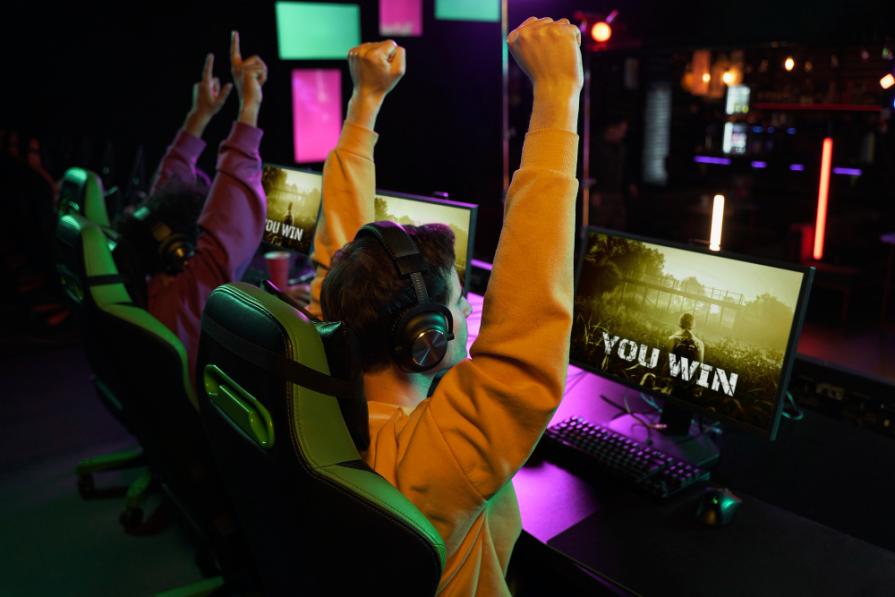If you try to honestly understand what is really important for a child, then the first thing to do is to look not at external behavior, but at the internal dynamics of development. At different periods of life, children have their own "leading activity" – the one that triggers and forms key psychological processes. Understanding this is the starting point for dialogue with the child and supporting his interests, including video games.

Ages 7-11: Between school and play

For children of primary school age, learning is the main form of activity. It is here that the structure of thinking is laid, the horizons are expanded, perseverance is formed. But it is at this time that many people begin to have difficulties with motivation: the program becomes more complex, the load grows, and fatigue accumulates faster. All this can lead to the fact that interest in learning gradually fades away.
Video games at this age can play the role of a full-fledged learning environment: they provide new knowledge, require strategy, attention, memorization, the development of fine motor skills and logical thinking. This is especially noticeable when the child enthusiastically talks about his achievements in the game, is proud of them, as if he received a certificate for excellent study.
However, games alone are not enough. A healthy daily regimen, regular physical activity, alternating forms of activity and a variety of leisure activities - this is what helps the student's brain to cope with tasks and not get tired. It is important for parents at this age not to prohibit, but to offer an alternative, to captivate, to involve, to look for forms of cognition that suit the child together with him.
If there is a rejection of school subjects, this is not always about "being lazy": more often it is about the fact that something has become incomprehensible, and therefore uninteresting. Joint analysis of complex topics, excursions, interactive video lessons, discussion of new knowledge in an informal setting can give the very effect of involvement that was lacking.
12–15 years old: from communication to self-discovery

In early adolescence, learning motivation fades into the background, peers and personal experiences come to the fore. Self-knowledge, comparison of oneself with others, the desire to be accepted are no longer just the background, but the main content of life. Communication becomes the leading activity.
In this case video games again turn out to be more than just entertainment: they turn into a space where you can communicate, compare, compete and seek recognition. Joint games, chats, in-game ratings - all this is a continuation of the school corridor, only in a different format.
But if in real life it is difficult for a teenager to establish contacts, if he does not feel successful in his studies or cannot understand his own feelings, the game reality can displace the external one. It is important not to take away the usual "security territory" from him, but to understand what exactly is so catchy in it. It can be the illusion of control, a sense of success, predictability... Talking about reasons, not reproaches, is what helps build a dialogue. Instead of pressing on the feeling of guilt, it is worth looking for more adaptive ways of self-expression with the child and achieving the same goals that he implements in the game.
Where is the line between interest and dependence
Parents often worry: what if there is already an addiction?! Here you should focus not on the duration of the game time, but on how much the child can control his behavior. If he can't stop playing, becomes irritable outside of it, sacrifices sleep, food, and study to keep playing, and continues to do so despite the negative consequences, it's no longer just a hobby: it's a signal that makes sense to involve a specialist. Consultation with a psychologist will help not only to "limit the screen", but to figure out what is behind this screen, what meanings the game gives to the child and why he cannot give it up. Often this leads to an improvement not only in behavior, but also in the overall emotional state.
How to use video games for good?

If everything is in balance, video games may not be an enemy, but an ally, especially when it comes to developing an interest in history, geography, economics, or the social sciences. Some modern games in terms of detail and atmosphere give children and teenagers something that is not always possible in the school curriculum.
For example, the games from the Assassin's Creed series allow you to literally "walk" through ancient Egypt or Greece, see how the people of that time lived, feel the spirit of the era, and Total War: Shogun II clearly shows the internal wars of Japan, giving an idea not only of the fighting, but also of the culture of the country. This is no longer just a game, but a visual and tactile textbook, where instead of boring dates there is a visual experience.
There are also more serious projects: in We. The Revolution, the player must adjudicate at a tribunal during the French Revolution. This requires reading documents, analyzing information, and understanding the context. The game turns into a simulator of moral choices. Anno 1800 provides insight into the Industrial Revolution, while Hearts of Iron IV explores the geopolitics of World War II.
What is the result
Talking about video games isn't talking about whether to ban or allow. This is a conversation about why a child needs them. It is important to look not only at the screen, but also behind it: at what role the game plays in the life of a particular person. For some, it is a way to relax, for others it is to be successful, and for others it is the only place where it is accepted.
The closer parents are to the child's inner world, the more likely it is that video games will not replace reality, but will become its complement — bright, meaningful, and educational. Everything begins not with control, but with interest, not with reproaches, but with questions, not with prohibitions, but with joint research.










